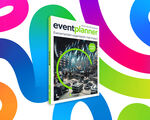Although for some, it seems like the most natural thing in the world to do, others get extremely nervous when they have to speak in front of an audience. Their face turns red, the heart rate goes up, or they get dizzy or forget what they want to say. These symptoms sound familiar? Then we have a few good tips for you.
First of all, you should probably know that you are certainly not the only one. There are tons of people who have to deal with extreme physical and psychological anxiety if they have to speak in front of an audience. Some even get worried weeks or even months in advance, while others get a panic attack at the mere thought of their 'performance'. Also, statistics show that anxiety and fear of failure are not at all as rare as you might think. It is even one of the most frequently reported symptoms of social anxiety. According to a recent survey, about 40% of adults in the United States have some degree of trouble with this. Speaking in front of people we don't know (well) is particularly a problem. Co-workers, fellow students, or even dinner guests can nudge you out of your comfort zone, making you even more vulnerable and anxious. Fortunately, there are a number of tricks to get a grip on your fears.
1. Do you consider nervousness normal?
Many people assume that other speakers have it easier, but the truth is that almost everyone experiences a little stage fright. Even actors and actresses who go on stage to accept an award often suffer from trembling hands and a quivering voice. In addition, your fear won't affect your presentation because the nerves usually go away in about a minute, even though it feels longer.
2. Minimize the wait
The most discomfort sets in while waiting to start: i.e. anticipatory anxiety. The key to staying calm is to not allow yourself to get nervous about the fact that you're nervous. In order not to think too much about it, it's a good idea to do something to get your mind off of things the days and hours leading up to the speech. Also, take a few deep breaths before you start, so as to ease up on the adrenaline rush. Short term meditation can also do the trick.
3. Good preparation
Another way to reassure yourself is to devote ample time to your preparation. For example, practice your speech in front of a mirror and make sure you know the first few sentences by heart. That way, you won't have to stress about how to start. It's just the first few moments that the hardest, so if you can talk on autopilot at that point, the anxiety will gradually diminish.
4. Explore the environment
Familiarize yourself with the area where you will be giving your speech in advance, so that you don't bump into any unexpected problems. Finding a balance between controlling as much as you can and realizing that you don't have everything under control is the key to avoiding nerves.
5. Wait for silence
If there is applause before the start of your speech, wait until it dies down completely. That is the ideal way to take control. Use that time to breathe, laugh, look around the room, and gently nod to indicate 'Thank You'. That will give you time to collect your thoughts.
6. Make the beginning easy
It is common for someone else to introduce you before you begin. If you are aware of this, you can feed off of this to form your opening statements. Think simple, like, "Thank you all for being here" for example. That will give you extra time to calm down and start comfortably.
7. Break the ice
If the opportunity presents itself, you can start off the presentation with an anecdote that breaks the ice. Depending on your audience, a personal story can do the trick, but cracking a joke can also get rid of nerves before going into something more serious.
8. Take control
A popular tip for calming the nerves is to pretend your audience is naked. The purpose is to make it seem like the listeners are more vulnerable and less intimidating. There are actually better ways to take control, however, because control comes from having the right attitude (which you are getting with these tips) and being properly prepared. If you've practiced properly, you can assume that the sentences will flow one after the other and that others will enjoy listening to you. Try to see the will to listen and the acceptance from their point of view, rather than focus on potential criticism.
9. Engage your listeners
Some people become better at ease by making eye contact with people they know, such as a colleague or fellow student they've become friends with. Others feel more at ease though anonymity. Neither method is any better than the other, as long as you keep talking as if you are having a real conversation. Talk 'to' your listeners, not 'at' them. Look for friendly, smiling faces that encourage you and make contact with as many people as possible.
10. Use a cheat sheet
Take along sheet of paper and jot down your main points as well as any people you should thank. Hold it in your hands or stick it in your pockets. You do this not because it's bad you might forget something, but rather because you will be calmer if you have the essentials there with you as a backup, even if you don't use them. Good luck!
Source: eventplanner.be /.nl








My sister has always had trouble with stage fright, and I want to help her find ways to manage this. Your article had some great tips for keeping calm when speaking for a crowd, and I liked how you said to get to know the environment your speaking in before hand so you know what you can and can't control. Thanks for the post; I'll share this with my sister to help her with her stage fright.